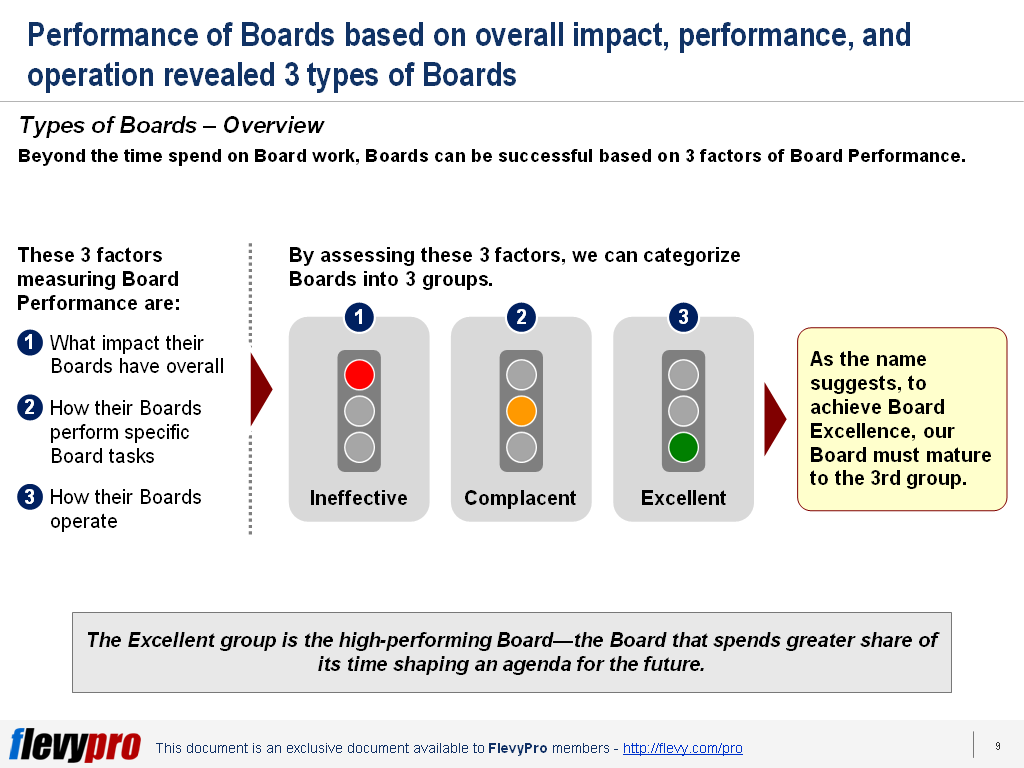The amount of time the Board of Directors spend on their work and commit to strategy is rising. Directors say they dedicate more time now to their Board duties than ever before. In fact, since 2011, the directors have cut in half the gap between the actual and ideal amount of time they spend on Board work.
to their Board duties than ever before. In fact, since 2011, the directors have cut in half the gap between the actual and ideal amount of time they spend on Board work.
In the newest McKinsey Global Survey on Corporate Boards, the results showed that strategy, on average, is the main focus of many Boards. Yet, directors still want more time for strategy when they consider their relative value to their companies. This is more than any other area of the Board work.
The Evolving Trends Influencing Board Work
In recent years, the amount of time the Board of Directors spends on Board work has increased. Compared to 2011, directors now spend five more days per year on Board work. Another trend that is happening is the increase in time. As the number of days has grown, so has the amount of time spent on strategy.
Based on the survey, a total of 772 days was spent on Board work in 2013. This has increased to 1,074 in 2015. Subsequently, 8.91% was spent on strategy in 2015 compared to 7.85% in 2013. With an increased focus on strategy, directors are dedicating more time on Strategic Planning and to discuss strategic issues.
In the next three years, directors would like to dedicate more time to Strategy Development and on organizational health and talent management. Directors want to increase the time spent on strategy due to its relative value to their companies.
The 3 Types of Boards
Performance of Boards based on overall impact, performance, and operation showed that there are 3 types of Boards.
- Ineffective. Ineffective Boards report the lowest overall impact and non-performance of tasks. They have the lowest overall impact on long-term value creation. Ineffective Boards are least effective at the 37 tasks required of the Board and they do not execute some of the tasks at all. Only a few are found to be effective at any one task.
- Complacent. Complacent Boards have a much more favorable view of their over-all contributions. Half of the directors considered their Board having a very high impact on long-term value creation. Complacent Boards have been found to be effective in the performance of tasks on management review of financial performance, setting the company’s overall strategic performance, and formally approving the management team’s strategy.
- Excellent. Excellent Boards are the most well-rounded of the 3 types of Board of Directors. Their overall impact is very high. Significantly, they project greater effectiveness in the performance of tasks than peers on every single task. Further, they are effective in strategy and performance management.
Achieving Board Excellence: What Does It Take
Those boards that reach Excellence are found to be effective at 30 of the 37 tasks undertaken by the Board. Compared to others, they stand out in the ways they operate. They have an especially strong culture and mechanism for feedback. They are more than twice as likely to conduct regular evaluations and ask for input after each meeting.
While this may sound daunting, achieving a value-creating Board is achievable. There are just fundamental principles that the Board needs to follow to achieve Board Excellence. One of these guiding principles is spending more time. Across-the-board increases are often achieved with more time spend on Board work.
Interested in gaining more understanding of achieving Board Excellence? You can learn more and download an editable PowerPoint about Board Excellence here on the Flevy documents marketplace.
Are you a management consultant?
You can download this and hundreds of other consulting frameworks and consulting training guides from the FlevyPro library.

Comments